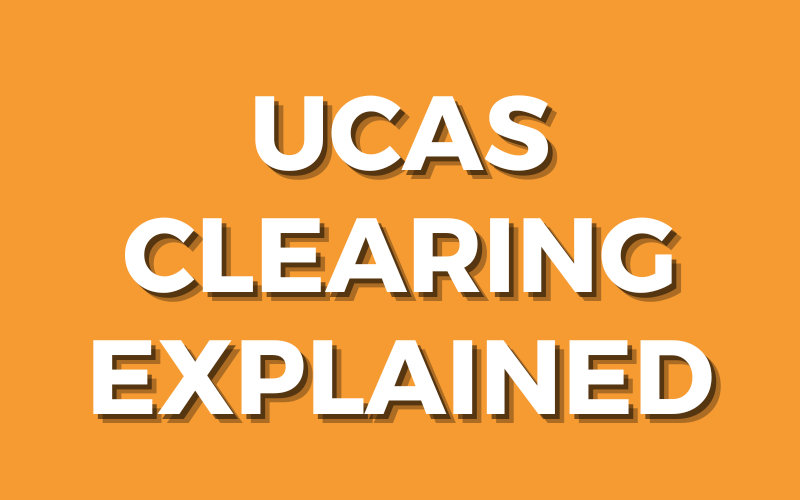If you change your mind or don’t get the grades you need for your firm or insurance choice, you can still apply to university through UCAS Clearing.
What is UCAS Clearing?
UCAS Clearing is how universities and colleges fill any places they still have on their courses.
When does UCAS Clearing open?
From July 5-October 17 2023, you can apply for a course using Clearing if you’re not already holding an offer from a university or college, and the course still has places.
Who is eligible for UCAS Clearing?
You can use clearing if:
- You applied after the June 30 deadline (you didn’t originally want to start university in 2023 but now you do)
- You didn’t receive any offers
- You declined your offers
- You didn’t meet the conditions of your offers
How to apply for UCAS Clearing
- Ask for advice at your school/college.
- See what courses are available using the UCAS search tool.
- Consider different subjects and joint honours courses.
- Check the course details such as course content and structure, and entry requirements.
- Call universities you are interested in and give them your Clearing number (you can find this in Track), and Personal ID, so they can look up your application. Ask if they have spaces and if they’d accept you.
- Get informal offers over the phone – maybe from a variety of universities and colleges – then decide which one you want to accept.
- Add your Clearing choice in Track. Only add a Clearing choice once you have permission from the university or college. This counts as you accepting the offer, so if they confirm, it’ll show as an acceptance on your ‘Choices’ page in Track. You can only add one choice at a time, but if the university/college doesn’t confirm your place, you’ll be able to add another.
View this post on Instagram
How much does UCAS Clearing cost?
If you originally only applied for one course for the reduced fee of £22.50, you’ll have to pay an additional £4.50 to apply through Clearing.
What is Clearing Plus?
Clearing Plus is a tool that you can use within Clearing to get a personalised list of courses that are likely to accept you.
Clearing Plus is only available if you’re unsuccessful with your application or you are applying for the first time for a place in Clearing.
You’ll be able to ‘view your matches’ in your UCAS Hub.
Here’s how it works:
- First, UCAS looks at the original choices you applied for, combined with your qualifications and grades.
- Universities and colleges have already told UCAS what courses they’d like to make available in Clearing Plus (only relevant courses are included in your matches), and the entry requirements for them.
- Then, UCAS analyse what students in Clearing went on to study in previous years.
- The UCAS team then matches your profile to each course.
This personalised Clearing plan should allow students to move seamlessly between universities – with individual support on offer from UCAS.
Can I change my mind in Clearing?
Anyone with a confirmed place who changes their mind can release themselves into Clearing to see their matches.
What is self-release?
Previously, if you wanted to change the course or university you had made your firm choice, you were required to call the university and ask for them to release you in to Clearing – this was sometimes a lengthy process. Now, with self-release, you are able to release yourself into Clearing in order to take up an offer from another university.
How to self-release:
- Sign into Track and click the ‘Decline my place’ button on your homepage.
- You will then be taken to a page that explains what you are able to do and there is a question you need to answer in order to confirm you definitely want to release yourself in to Clearing.
- You will receive an email confirming you are in Clearing.
You can apply for our BA (Hons) Multimedia Journalism degree now – here’s a link to our UCAS page. If you have any questions you can email us on training@newsassociates.co.uk or call us on 0203 026 3781.
Here are the details you’ll need:
- Course code: P500
- Institution code: P63
- Campus: London (L)
This explains our relationship with Marjon University.
You can also apply for deferred entry at this point, if you’re looking to study with us next year in 2024.
View this post on Instagram
Want to find out more? Read our guide to why you should apply to The School of Journalism here.

